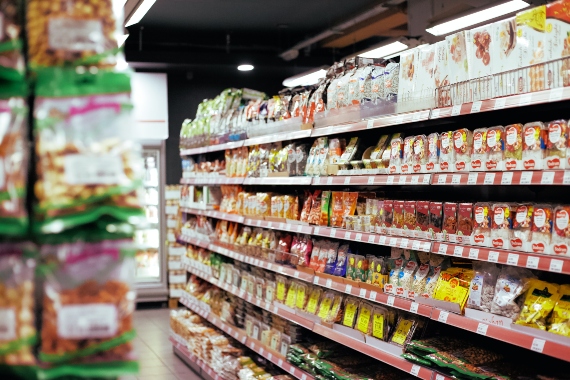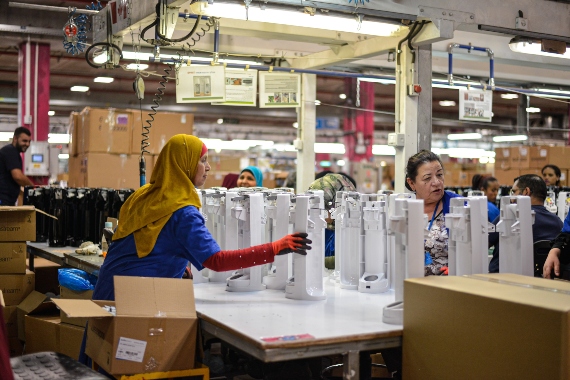The neoclassical hypothesis of economics establishes that economics is the science that studies human behavior in relation to objectives and scarce resources that have alternative uses. This definition implies that economic agents (families and companies) are maximizers, subject to restrictions. They are agents who seek to maximize (increase) their welfare without caring about that of others (they are selfish), insofar as their ‘utility’ (‘satisfaction’ in technical language) functions do not depend on the ‘utility’ of other individuals or any external influence on the satisfaction (welfare) derived from consumption.
In the perfect competition model – the paragon of markets in economic theory – the choices of the many competing companies do not consider or react to what the others do, since they are reactive – they take the market price as a given, since it is understood, and indeed assumed, that the good is homogeneous – and at that price they maximize their profit, while taking into account the constraints they face. Neoclassical economics argues that social welfare reaches its maximum in this way, since scarce goods are used in the most efficient way in their various uses and there is no way to be ‘better off’ without affecting at least one of the agents. Moreover, it is assumed that in this competitive market an equilibrium is achieved – satisfied by prices – that ‘empties’ the market: excess supply or excess demand does not exist (quantities). Put another way: “The market is an efficient organization” that succeeds in achieving optimal social welfare.”

The model described above is unfortunately (very) rarely observed in practice. Companies do not produce homogeneous goods (as they try to differentiate themselves); they seek to innovate and capitalize on a niche, exploiting it to the maximum; they take advantage of insider opportunities; they exploit scales of production, etc. Companies are not passive agents that remain immobile in the face of competition. The equilibrium state is stationary. Understanding its limits, the model is useful in that it establishes a ‘comparative’ conceptual proposition. If markets behaved in this way, consumers would obtain the maximum level of satisfaction permanently, since competition would be so ‘intense’ that the equilibrium price would be the lowest possible, allowing companies to produce and obtain ‘competitive market’ profits. However, the concept of ‘equilibrium’ comes at a huge cost: lack of diversity. If the product is homogeneous, we would all wear the same clothes, with the same texture, cut and color. The same shoes, the same cars, etc. Diversity and innovation are costly. The concept of equilibrium also sacrifices the notion of a differentiating company.

As previously discussed, the world of perfect markets is more of a theoretical concept that is useful for reviewing how markets actually behave when faced with this proposition. And the reality is that markets are complex and show a multitude of ‘flaws’. The following are some of the most common:
a) Externalities – actions of a company that affect others, and yet they do not pay for it. The most common example is, of course, pollution. This problem will be described in greater depth below.
b) Competition – companies develop innovations, which can lower the average total cost, put them at an advantage and generate higher incomes by extracting this benefit from the consumer. Large companies, for their part, have the possibility of deterring competition through scale production.
c) Public goods – goods that are not supplied by the market (they do not generate profits) and if they are, the quantities are insufficient.
d) Incomplete markets – in such a market there are no incentives for optimal supply because the information is incomplete.
e) Information failures – when agents have incomplete information and the market provides little information, resulting in an asymmetric distribution of information.
f) Unemployment and other economic shocks such as high inflation rates.
Let us examine the failure that has given rise to perhaps the greatest challenge (and problem) facing humanity[1] (and the economic system) today. The industrial revolution accelerated the use of fossil fuels, which has meant a truly toxic legacy that has not been resolved. When a polluter makes decisions based solely on its (private) costs and profits with no regard for the indirect costs borne by the victims of pollution, a negative externality is generated. This situation is no longer temporary, since it will take many years for the atmosphere to process fossil fuel gases. The social – i.e. total – costs of production are higher than the private costs. Greenhouse gas emissions are even threatening the future of humanity.
Societies, international institutions and global regulation become an indispensable element in reducing this enormous market failure. There is a clear relationship of interdependence between nature or the environment and the economy itself. Any economy uses natural resources and generates waste; production causes deterioration of ecosystems, there is a loss of biodiversity and the capacity for environmental assimilation is not studied. Economic processes are inevitably biophysical processes; according to the law of energy conservation, in productive processes resources will be transformed – at least in part – into waste.

Possible measures cannot simply consist of paralyzing industrial activities, and we can certainly foresee that the impacts will affect developed and emerging nations unequally, opening the door, alarmingly, to the emergence of political, asymmetrical and opportunistic criteria. Goodbye solidarity: the problem of the ‘free rider’ usually arises, i.e., the person who takes advantage of the fact that others will comply, so as to not comply. Although theory indicates that this type of scenario requires the application of corrections through taxes – as expressly confirmed in (Coase, 1960) – or other types of controls (that internalize the cost to the issuer), the reasons for non-compliance are numerous, especially when it comes to nations. Indeed, if these emissions surpass a jurisdiction, the control mechanisms are usually totally insufficient. Unless these agreements are accepted unanimously and the commitment is expressly accepted, their effectiveness is dubious to say the least. If the largest emitter (the USA with Trump as president) refused to take part in the global agreements, the positive effects of the measures adopted are negligible. The emissions problem is global and global binding agreements are required. This failure of the institutional framework under which these markets operate is a serious flaw in the design of the economic and production rules, which allow, tolerate or ignore these environmental impacts and allow corporations to ignore them and not assume responsibility for the damage.
In this context, regulation is the normative framework that can drive the choices of economic agents. Permanently maintaining the purpose of correcting negative costs is, of course, central. According to Stiglitz (2010) “regulation is necessary because social and private costs and benefits, and thus incentives, are misaligned.” After the 2008 financial crisis, state regulation has become a widely accepted intervention.
J. Francisco Pulido
Morelos State Government Council of Science and Technology
[1] Every time we start an internal combustion engine, it releases pollutants into the atmosphere, such as nitrous oxides (NOx), carbon monoxide (CO), carbon dioxide (CO2), volatile organic compounds and particulates.
Comments on this publication